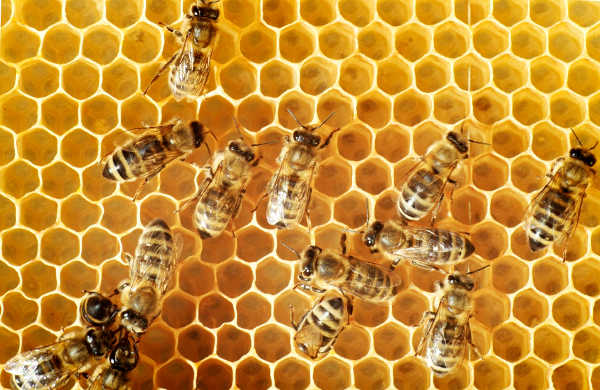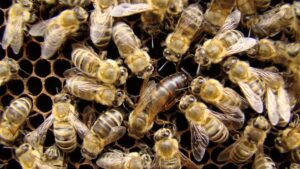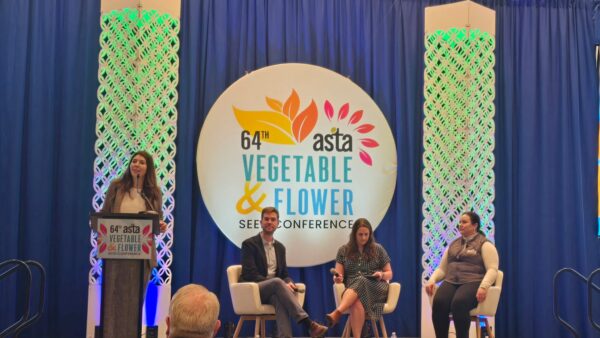The Bayer Bee Care Program today announced $250,000 in additional funding to support its Feed a Bee 50-state pollinator health initiative through the end of the year. With only three grant cycles remaining in 2018, and the initial $500,000 funding already pledged to projects in 45 of the 50-state goal, the funding boost aims to encourage additional entries nationally and to reach organizations in the five states that have yet to be funded: Alaska, Hawaii, Mississippi, Nevada and Wyoming. The latest round of funding awarded grants to 14 new projects committed to providing diverse forage and habitat for honey bees and other important pollinators.
Established in early 2017, the Feed a Bee 50-state forage initiative was created to fund projects nationally that either establish or restore diverse forage options for pollinators, which in turn help produce many of the fruits, nuts and vegetables essential to a healthy human diet. Nearly 300 organizations have applied for an award, which are selected by the Feed a Bee steering committee and range from $1,000 to $5,000 each.
“Our goal from the very beginning of the 50-state forage initiative has been to provide additional sources of abundant nutrition and habitat for pollinators,” says Dr. Becky Langer, project manager, Bayer North American Bee Care Program. “We’re now working with more than 100 organizations across the country. It’s exciting to see our goal come to fruition, and even more rewarding to see the passion and dedication our Feed a Bee grantees have for the future of honey bee and pollinator health.”
Recently funded projects range from restoring habitats to developing pollinator plots for local residents, students and government employees to maintain. Each project also incorporates education, such as field days and on-site classes for the local community. The City of Greeley, Colorado, for example, will work to restore habitat across three sites encompassing 96 acres of local natural areas. The National Wild Turkey Federation, in partnership with the U.S. Forest Service, will use their funds to enhance eight acres of habitat in Vermont’s Green Mountain National Forest and will incorporate a demonstration plot into an existing woodcock management area for landowners and land conservation managers to use for education. In Kansas, McConnell Air Force Base personnel will remove existing non-native plants and replace them with native species.
“Support from the Feed a Bee initiative will allow us to expand our ongoing pollinator monitoring surveys, increase the geographic area for educational events, collect native seeds and add sites to our annual Monarch tagging efforts in the fall,” says Laura Mendenhall, a fish and wildlife biologist at McConnell Air Force Base. “Most importantly, we’ll have the ability to demonstrate the use of native plants in non-conventional areas, rather than in designated pollinator plots, which will help us respect the Air Force aesthetic and, at the same time, help us cement this pollinator-friendly planting strategy not only in Air Force culture but in the Wichita Metro Area landscaping culture.”
Grantees awarded funding in round five of the Feed A Bee initiative include:
West Side Elementary School, California
City of Greeley, Colorado
Connecticut Agricultural Experiment Station, Connecticut
Sheila Weldon, Iowa
McConnell Air Force Base, Kansas
Feds Creek & Kimper Elementary Pollinator Trail & Community Garden, Kentucky
Greenup County FFA, Kentucky
Detroit Hives, Michigan
U.S. Fish & Wildlife Service, Nebraska
Timberdoodle Farm, New Hampshire
Greensboro Beautiful, Inc., North Carolina
Mountrail Pioneers 4-H Club, North Dakota
U.S. Fish & Wildlife Service, North Dakota
National Wild Turkey Federation, Vermont
“We continue to see amazing work from our grantees and applaud their unique ability to serve as ambassadors for honey bees, butterflies, birds and other pollinators,” Langer says. “These organizations raise awareness for the need for forage on a grassroots level that is otherwise difficult to undertake. We are proud to work side-by-side with them and can’t wait to welcome our newest grantees.”











